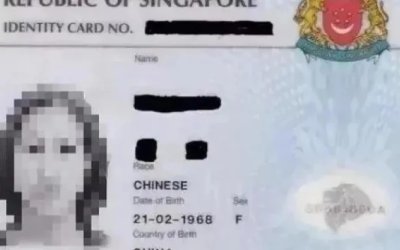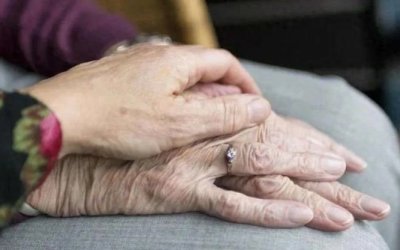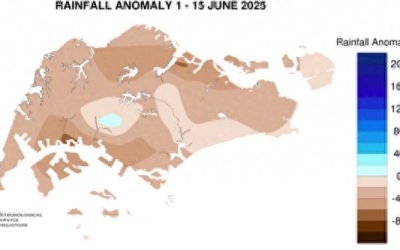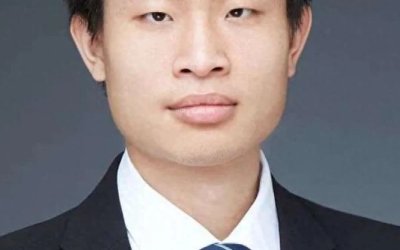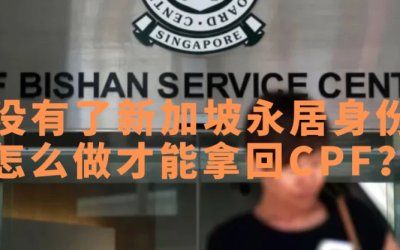This is why the ComLink+ Package for Preschool will recognise parents' efforts to prioritise their children' preschool education. This is how it will work: every child between ages three and six in a ComLink+ family who enrols in and attends preschool regularly, can receive up to $3,700 in their Child Development Account (CDA). This includes a one-time CDA top-up of $500 when the child is enrolled in preschool in the year that he or she turns three, and $200 for each quarter that the child achieves at least 75% attendance in the preschool. These top-ups are funded by one of our ComLink+ anchor partners, DBS. The Government will also match these CDA top-ups as part of the Baby Bonus Scheme, so that the child can get as much as $7,400 in total in their CDA. I would like to emphasise that the parents do not need to make any monetary contribution. All they need to do is to enrol and send their child to preschool regularly.
As Laila continues her preschool education, Aini will also benefit from the preschool subsidies given to lower-income households. Mr Gerald Giam will be pleased to know that full-day childcare fees for children from all lower-income families at Anchor Operator preschools cost as low as $3 monthly.
If Laila regularly attends a Government-supported preschool until six, not only will the ComLink+ CDA top-ups fully pay for her preschool fees, there will also be ample balance remaining in her CDA that can be used for her healthcare and other primary school expenses.
Since the nationwide scale-up of ComLink, we have been encouraged by the good response from the families, many of whom have agreed to work with us. And we are now ready to embark on our next move: to provide ComLink+ support to families beyond those in public rental housing. From this month onwards, and over the next three years, we will expand ComLink+ to cover another 3,000 lower-income families who are not in public rental housing and are eligible for KidSTART or UPLIFT Community Network. These families face similar challenges as our ComLink+ families and would also benefit from family coach support and the ComLink+ Progress Packages.
ComLink+ embodies our refreshed approach to support our lower-income families, something Mr Melvin Yong touched upon.
First, our approach has to be family-centric. Our family coaches recognise each family's unique aspirations, strengths and circumstances and work with them to chart their next steps. They also take the lead to coordinate and integrate support for the families they serve, giving families more headspace to plan for their own future and achieve their goals.
Second, our shift from social assistance to social empowerment, where we help families move forward as they work towards a better future. ComLink+ aims to empower families to achieve the 3S outcomes of stability, self-reliance and, eventually, social mobility over the long term. This is distinct from social assistance that serves immediate needs but may have less direct and sustained impact on longer-term outcomes.
Third, our greatest support comes from partnerships: our volunteers and our partners. Our ComLink+ partners across the people, private and public sectors contribute what they can to support others in need.
Our anchor partners, DBS, Singapore Pools and, most recently, The Ngee Ann Kongsi, fund some of the ComLink+ Progress Packages. DBS, for instance, has made a contribution of over $30 million – three zero million dollars – to the ComLink+ Packages for Preschool and Home Ownership.
Many DBS staff have also stepped forward as Befrienders, while Singapore Pools staff are also volunteering at various ComLink+ programmes. Students like Ansel Lim and Adele Koo from NUS, whom I have also met recently, are Aini's Befrienders. They play with Laila and organise outings with the families and in this Year of Celebrating Volunteers, I want to express my heartfelt thanks to our ComLink+ volunteers for devoting your time and energy to journey alongside these families.
We welcome community partners to work alongside ComLink+ to offer complementary programmes where there is a need, such as debt counselling, financial literacy, homework supervision and sports programmes. In this way, everyone contributes to uplifting our lower-income families.
Looking ahead, we hope that ComLink+ will support families' pursuit of long-term aspirations. Going forward, we will track ComLink+ families' progress towards the 3S outcomes and work with local academics to evaluate the efficacy of the ComLink+ Progress Packages.
Aini's challenges are not unique. In every society, there will be those who struggle from time to time. However, what really reflects our moral fibre as a society is how we work together to make sure that no one is permanently stranded at the bottom of the barrel. As our lower-income families work hard to build a better tomorrow for themselves, let us support and journey alongside them.
I now move on to enabling persons with disabilities. I would like to assure Ms Denise Phua and Ms Rahayu Mahzam that we are working hard and making good progress on implementing our Enabling Masterplan (EMP) 2030. SG Enable plays a key role in galvanising an extensive range of partners towards our EMP 2030 goals. Members can refer to MSF's website for more detailed updates – as Ms Denise Phua mentioned, you might have to do a few clicks but you can find all the details there – but today, let me share some key efforts and progress.
First, we want to empower persons with disabilities to pursue their work aspirations: to get a job and to stay employed. To do this, we adopt a person-centric approach, providing a range of employment support programmes to cater to various needs and capabilities.
SG Enable piloted the Place-and-Train programme in 2021, where employers receive salary support of up to 90% while they train persons with disabilities placed with them. Through Place-and-Train, 131 employers have hired more than 330 persons with disabilities. We will extend the programme for two more years and place and train another 200 persons with disabilities by 2026.
Last December, SG Enable launched the first Enabling Business Hub at Jurong, (EBH@Jurong), partnering employers, training providers and social service agencies, to bring job opportunities in the logistics sector closer to persons with disabilities in the West. The onsite team at EBH@Jurong also provides enhanced employment support for up to 24 months at a higher intensity, to support those with higher job support needs.
For some, the road to employment is a longer journey. I recently met Lek Wei and his parents. Lek Wei is autistic and often had meltdowns. After graduation, he enrolled as a Sheltered Workshop trainee with the Knead with Love bakery at the THK Pan-Disability Centre @ Eunos.
